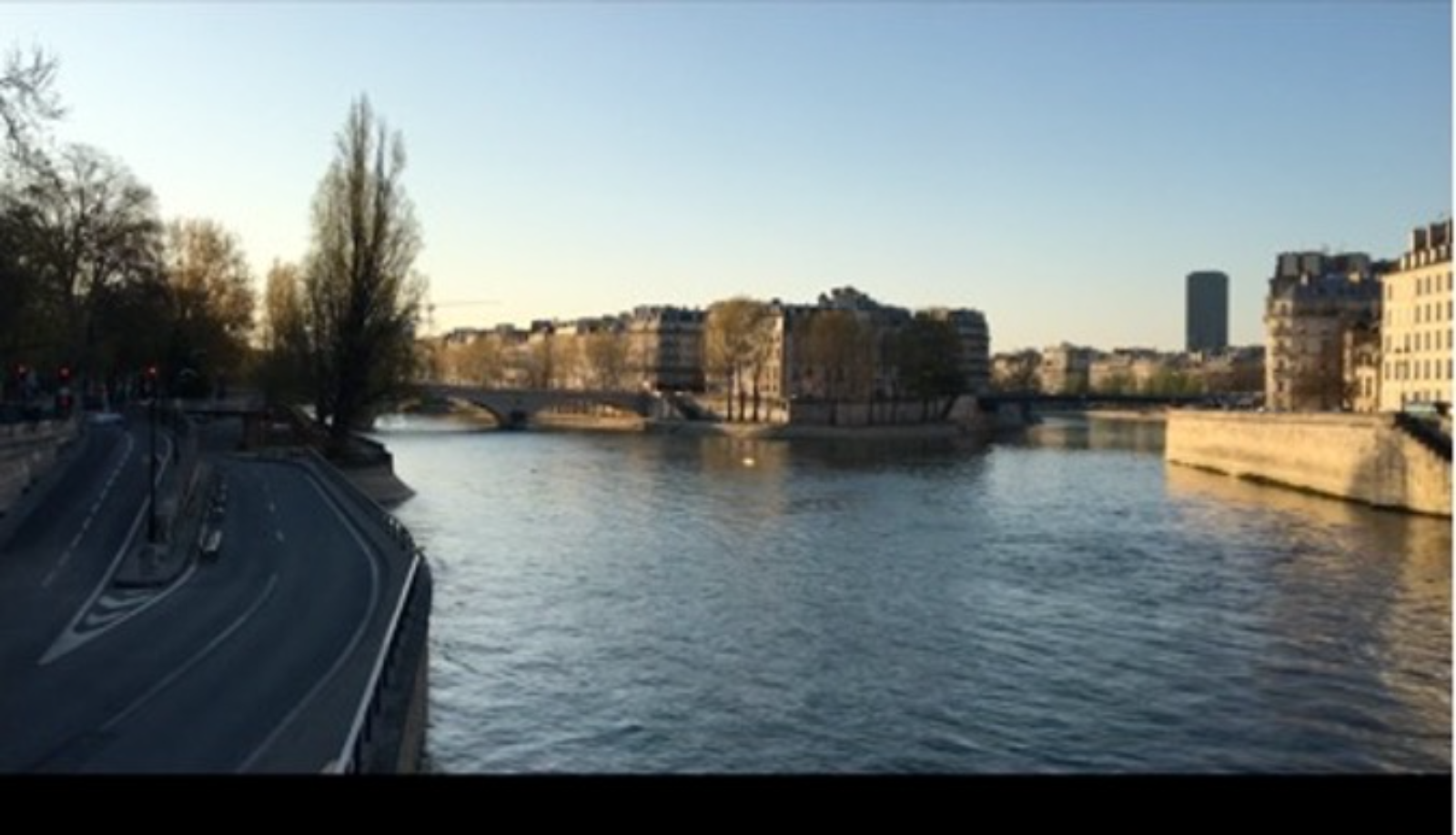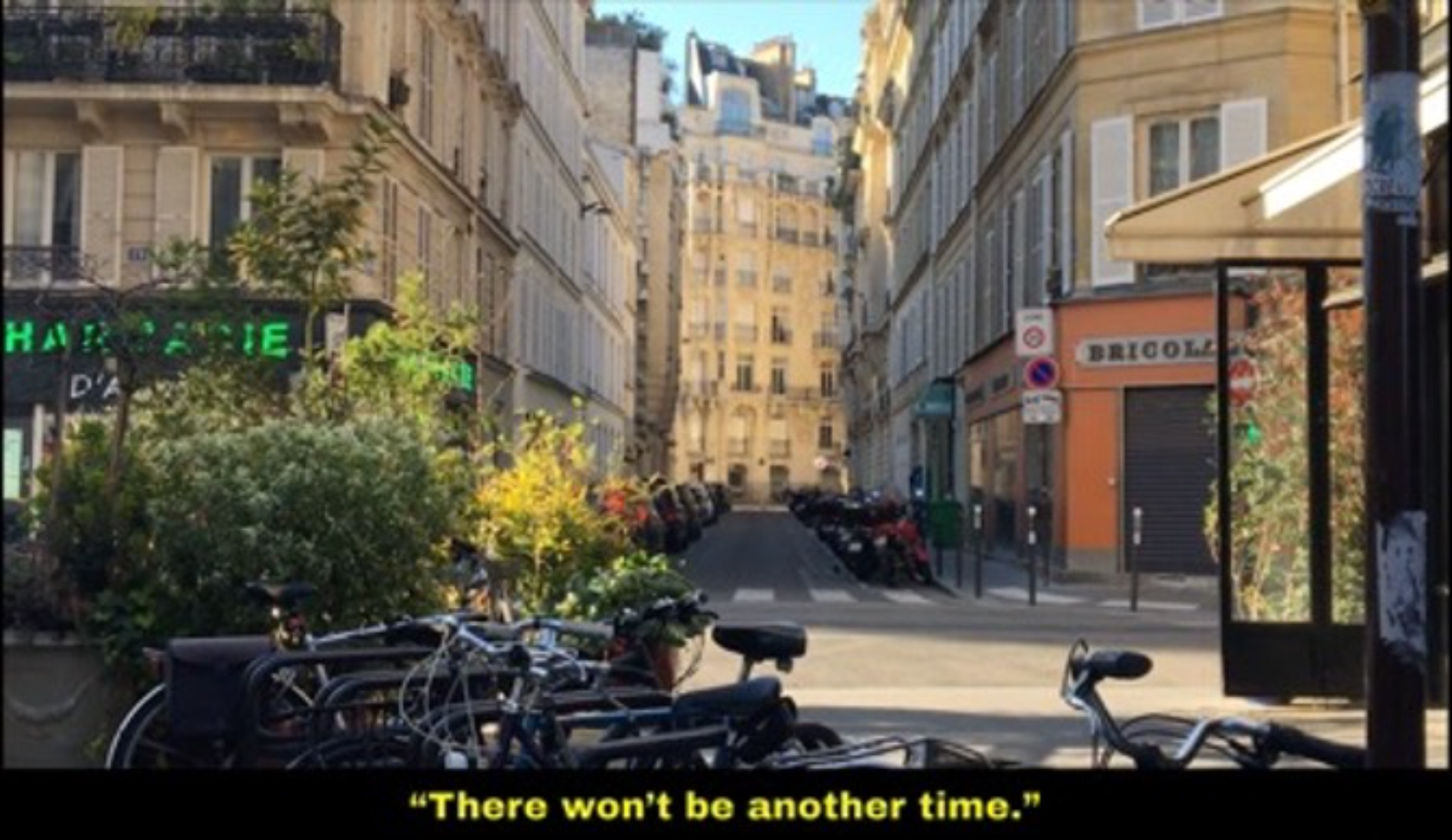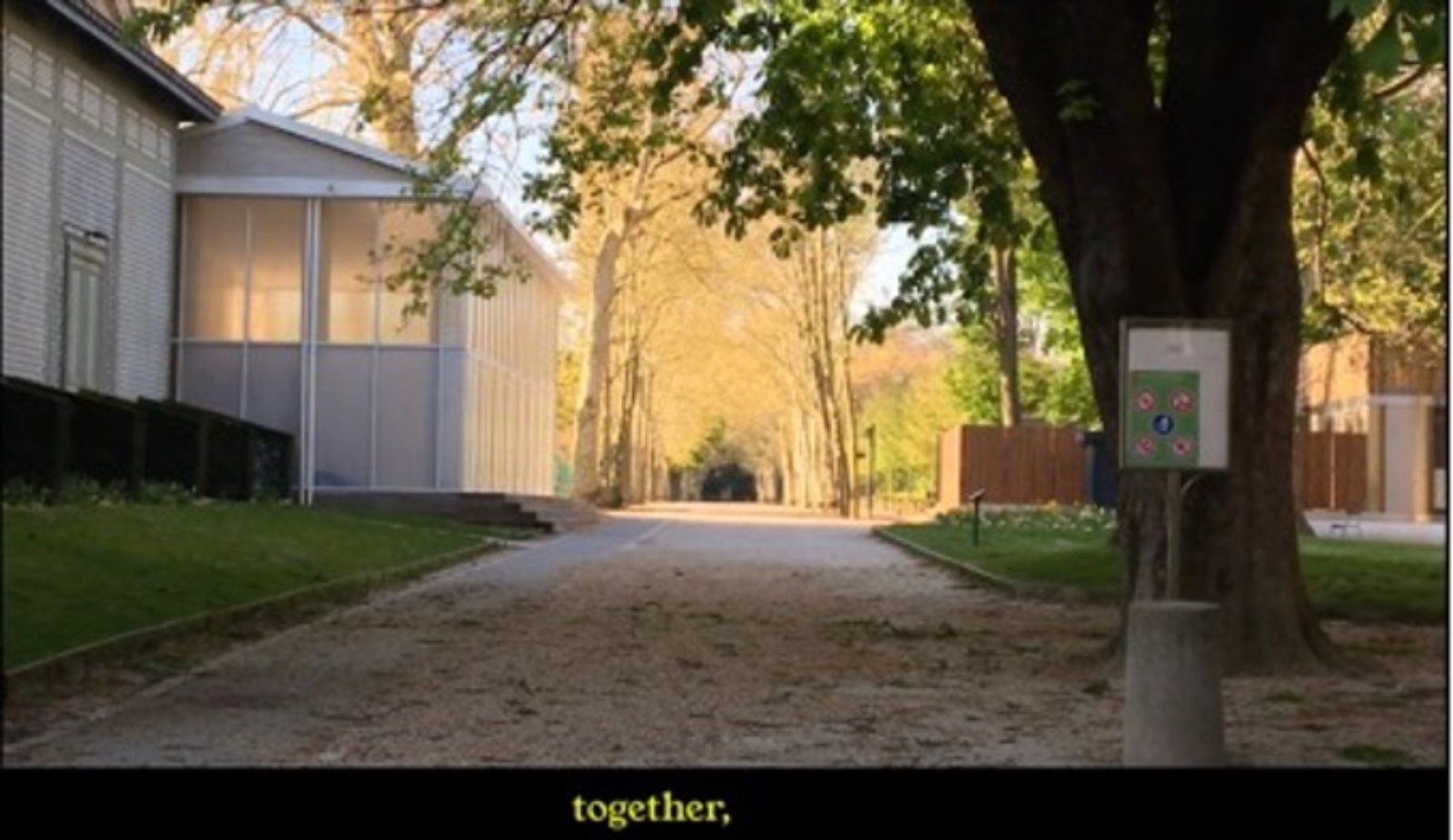The short film, set in Paris during the first COVID-19 lockdown in spring 2020, weaves an intimate narrative about everyday connections. Inspired by true events, French-American filmmaker Lucca Dahan-Fletcher scripts a quiet, quotidian story that centers on three Parisian women who share a socially distanced cup of tea in their apartment courtyard. Each character’s experience reflects the surreal isolation of the pandemic: Frances (voice-over by Charlotte Gainsbourg), a retired British art teacher, is followed by a suspicious yet alluring stranger who merely wants to steal a bag of masks; Satu (voice-over by Camélia Jordana) is confronted by a man who confesses to spying on her through neighbourhood windows; and Pauline (voice-over by Pauline Chalamet), a young au pair, who observes the shifting realities of children living under lockdown.
The 8-minute film captures the strange mix of distance and unexpected closeness that defined life during that time. Their narrations are specifically gendered ones, and their conversation implies women’s circumstances. The film starts with a discussion how restriction of French way of greeting, bisous, is imposed during pandemic, Satu expresses her dislike towards the gesture: “Not everyone, of course, but some men, they use it as an opportunity to get closer to you, and betray the cheek to cheek rule” (00:50–00:57). Later, she also sarcastically mimics her neighbor’s mansplain and harassment she encounters during lockdown: “You should come to my place, and see what my curtains are like, I could show you how to drill” (02:59–03:05). These moments captures women’s vulnerabilities even in a suspended urban life, and presents the lived experience of women, reframed, in a strange time.
While each of their own eccentric and elevating account unfolds through light-hearted banter, the camera opts out of any static shots of the three women. The camera drifts through Paris’s empty streets, employing an observational shooting method. The women’s voice-overs function as interior monologues, contrasting their private reflections with the images of public space. This juxtaposition reinforces the paradox and the physical and psychological chasm of lockdown. In separation, there is intimacy to be found; without encounter, there is still visibility. Paris becomes a silent witness to these gendered encounters, standing in for the absent social body. The audience’s perspective glides from tranquil canals to picturesque architecture and still-well-tended gardens—even in stillness, the city retains its beauty. Paris is still Paris, and the camera morphs into mechanical replacements of wandering pedestrians, who flâner through the city during a peculiar lockdown moment.
 ,
,  , and
, and 
Image Captions:
Image 1. View of the Seine. Screenshot of film still, April 2020 Paris, directed by Lucca Dahan-Fletcher, 2020.Image 2. The empty streets of Paris, all the shops are closed. Screenshot of film still, April 2020 Paris, directed by Lucca Dahan-Fletcher, 2020.
Image 3. A long pathway towards a garden, with fallen leaves all over the ground. Screenshot of film still, April 2020 Paris, directed by Lucca Dahan-Fletcher, 2020.
Citation: April 2020 Paris. Directed by Lucca Dahan-Fletcher, Le Cinéma Club, May 2020. SHORT FILM | FRANCE/US. yc.
Source Type: Film and Theatre
Country: France and US
Date: 22-May-2020
Keywords: Female Experience, Feminist, Human Connection, Lockdown, Observational Cinema, Paris, Narrative Story, and Short Film